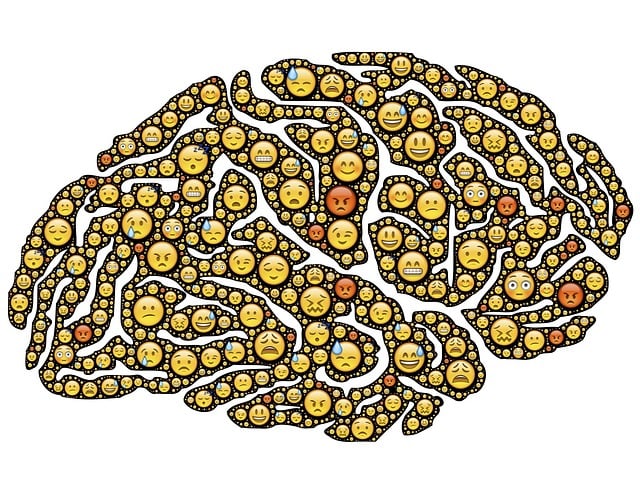Cultural competency is vital in healthcare, especially in diverse cities like Colorado Springs, where various cultural groups coexist. When addressing mental health issues like postpartum depression (PPD), understanding cultural differences ensures personalized care. This approach improves treatment effectiveness, builds trust, and encourages patient engagement. For new mothers in culturally diverse communities, barriers such as limited access to sensitive healthcare, language issues, discrimination fears, and taboos make PPD management challenging. The Stress Management Workshops Organization offers mindfulness meditation and mental wellness coaching programs to overcome these obstacles. Effective cultural competency training for healthcare providers involves emotional intelligence, stress workshops, active listening, and adaptability to tailor care. Sustainable change through balanced training, effective communication, and community collaboration is crucial for improved patient outcomes, including access to Colorado Springs Postpartum Depression Therapy.
In Colorado Springs, addressing postpartum depression (PPD) requires a nuanced approach, especially within diverse communities. This article explores cultural competency training for healthcare providers as a vital strategy to improve PPD therapy outcomes. We delve into the significance of understanding cultural context in healthcare, identifying barriers faced by new mothers from various backgrounds, and implementing effective training strategies. By equipping providers with the right tools, we aim to revolutionize Colorado Springs’ approach to PPD care.
- Understanding Cultural Competency in Healthcare: Why It Matters for Colorado Springs Postpartum Depression Therapy
- Identifying Barriers: Challenges Faced by New Mothers from Diverse Backgrounds
- Strategies for Effective Training: Equipping Providers with the Right Tools
- Implementing Change: Ensuring Long-Term Impact on Patient Care and Outcomes
Understanding Cultural Competency in Healthcare: Why It Matters for Colorado Springs Postpartum Depression Therapy

Cultural competency is a vital aspect of healthcare that involves understanding and respecting diverse cultural beliefs, values, and practices. In Colorado Springs, where a rich tapestry of communities coexist, this concept is particularly relevant when addressing mental health issues like postpartum depression (PPD). Many individuals in this region bring with them unique cultural backgrounds, traditions, and ways of expressing emotions, which can significantly impact their therapeutic journey.
For healthcare providers specializing in Colorado Springs Postpartum Depression Therapy, incorporating cultural competency into their practice ensures that every patient receives personalized care. By acknowledging the emotional healing processes unique to different cultures, therapists can create a safe space for open communication. This approach not only enhances the effectiveness of treatment but also fosters trust and encourages patients to engage actively in their mental wellness journey. Moreover, considering cultural nuances is an essential component of risk management planning for mental health professionals, ensuring the highest level of care tailored to each patient’s individual needs.
Identifying Barriers: Challenges Faced by New Mothers from Diverse Backgrounds

New mothers from diverse backgrounds often face unique challenges that can significantly impact their mental health and overall well-being. In Colorado Springs, where cultural diversity is thriving, addressing these barriers is essential for ensuring positive outcomes. One of the primary hurdles is the lack of access to culturally sensitive healthcare services, especially in postpartum care. Many women may feel hesitant to seek help due to language barriers, fear of discrimination, or a disconnect with traditional treatment approaches.
For instance, some mothers might struggle with postpartum depression (PPD) and anxiety but be reluctant to discuss these issues due to cultural taboos surrounding mental health. Additionally, practical challenges like childcare responsibilities, limited support systems, and financial constraints can exacerbate existing stress. The Stress Management Workshops Organization in Colorado Springs has recognized these issues and developed Mindfulness Meditation and Mental Wellness Coaching Programs to cater to the diverse needs of new mothers, offering a supportive environment for open discussions and tailored strategies to navigate these barriers effectively.
Strategies for Effective Training: Equipping Providers with the Right Tools

Effective cultural competency training for healthcare providers involves equipping them with a toolkit that addresses diverse needs and promotes genuine connection. This includes fostering emotional intelligence—the ability to understand and manage one’s emotions, as well as recognize and respond sensitively to others’ emotions. By integrating emotional intelligence into training programs, mental health professionals in Colorado Springs can navigate complex interpersonal dynamics with greater ease.
Additionally, regular stress management workshops should be organized to help providers maintain resilience in the face of challenging situations. These workshops can teach practical strategies for coping with workplace pressures and enhancing overall well-being. Cultural sensitivity in mental healthcare practice is also paramount. Training should emphasize active listening, cultural inquiry, and adaptability to ensure that every patient receives care tailored to their unique background and experiences, reflecting the diverse community in Colorado Springs, including those seeking postpartum depression therapy.
Implementing Change: Ensuring Long-Term Impact on Patient Care and Outcomes

Implementing sustainable change within healthcare systems is paramount to improving patient care and outcomes, especially for underserved populations like those experiencing postpartum depression in Colorado Springs. Training programs focused on cultural competency must go beyond theoretical knowledge and include practical strategies that can be immediately applied in clinical settings. By equipping mental health professionals with effective communication techniques and a deep understanding of cultural sensitivity, we empower them to create inclusive environments where patients feel heard and understood.
This shift towards culturally competent care requires ongoing support and policy analysis. Mental health advocates must collaborate with policymakers to ensure that resources are allocated effectively, reflecting the diverse needs of the community. For instance, integrating evidence-based practices and fostering a culture of continuous learning within healthcare institutions can lead to better patient outcomes, such as improved access to specialized postpartum depression therapy in Colorado Springs.
Cultural competency training is a game-changer in improving healthcare outcomes, especially for marginalized communities in Colorado Springs. By addressing barriers faced by new mothers from diverse backgrounds, as highlighted in this article, healthcare providers can deliver more effective and inclusive services, such as Colorado Springs Postpartum Depression Therapy. The strategies outlined here, when implemented rigorously, have the potential to revolutionize patient care, ensuring long-term positive impacts on mental health support and overall well-being for all mothers.














